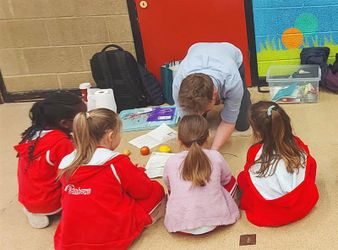Bright spark guides take on new Girl Power challenge
Girl guides in and around Bristol are the first in the South West to take on fun electricity challenges to earn a brand-new badge.
Guides are tackling a range of activities around the themes of electrical safety, energy efficiency, low carbon networks and how people with extra needs and vulnerabilities can be supported in a power cut.

The “Girl Power Challenge” has been brought to the region by us and Girlguiding Bristol and South Gloucestershire.
All the tasks are designed to be fun and can be undertaken by Rainbows, Brownies, Guides and Rangers as a Six, Patrol or other grouping.
Among the 30 challenges are:
- making lightning
- electricity-free cooking
- building an electric car
- using potatoes as batteries
- calculating carbon footprints and ways to reduce them
Ellie Patey, NGED’s Community Engagement Manager, said: “The Girl Power Challenge offers not only fun activities to engage Rainbows, Brownies, Guides and Rangers, but we hope it will also spark interest in Science, Technology, Engineering and Maths (STEM) and potential careers in the electricity industry.
“We have an essential role to play in helping the UK’s energy transition and attracting more young female talent to become the engineers of tomorrow will be vital to achieve this, so we’re delighted to support the Girl Power Challenge.”
Sophie Hoy, of Girlguiding Bristol and South Gloucestershire, said: “We have had a fantastic response to the Girl Power Challenge badge in Girlguiding Bristol and South Gloucestershire with almost 2,000 members having taken on the challenge.
“The feedback from our groups has been brilliant and our young members have been excited to undertake these activities. We are on a mission to show STEM is for everyone and working with National Grid Electricity Distribution has helped us do that.”
The Girl Power Challenge was originally developed by Electricity North West and Girlguiding North West England.
Girlguiding Bristol and South Gloucestershire has 3,000 young members aged between 4 and 26, supported by 1,000 volunteers.
